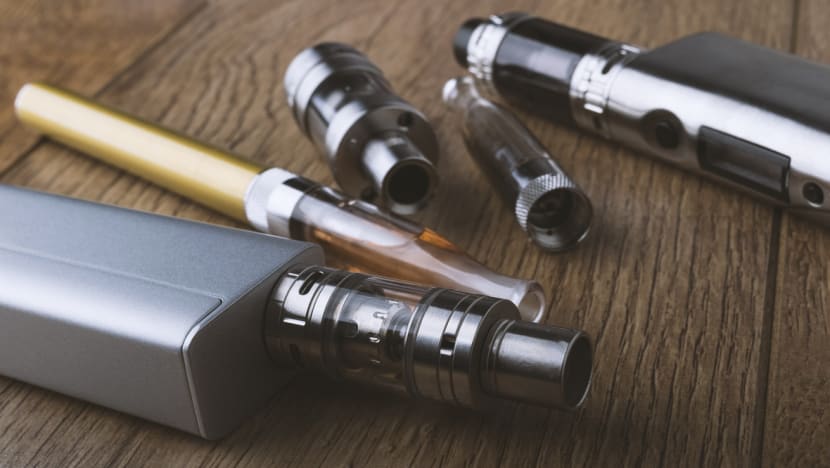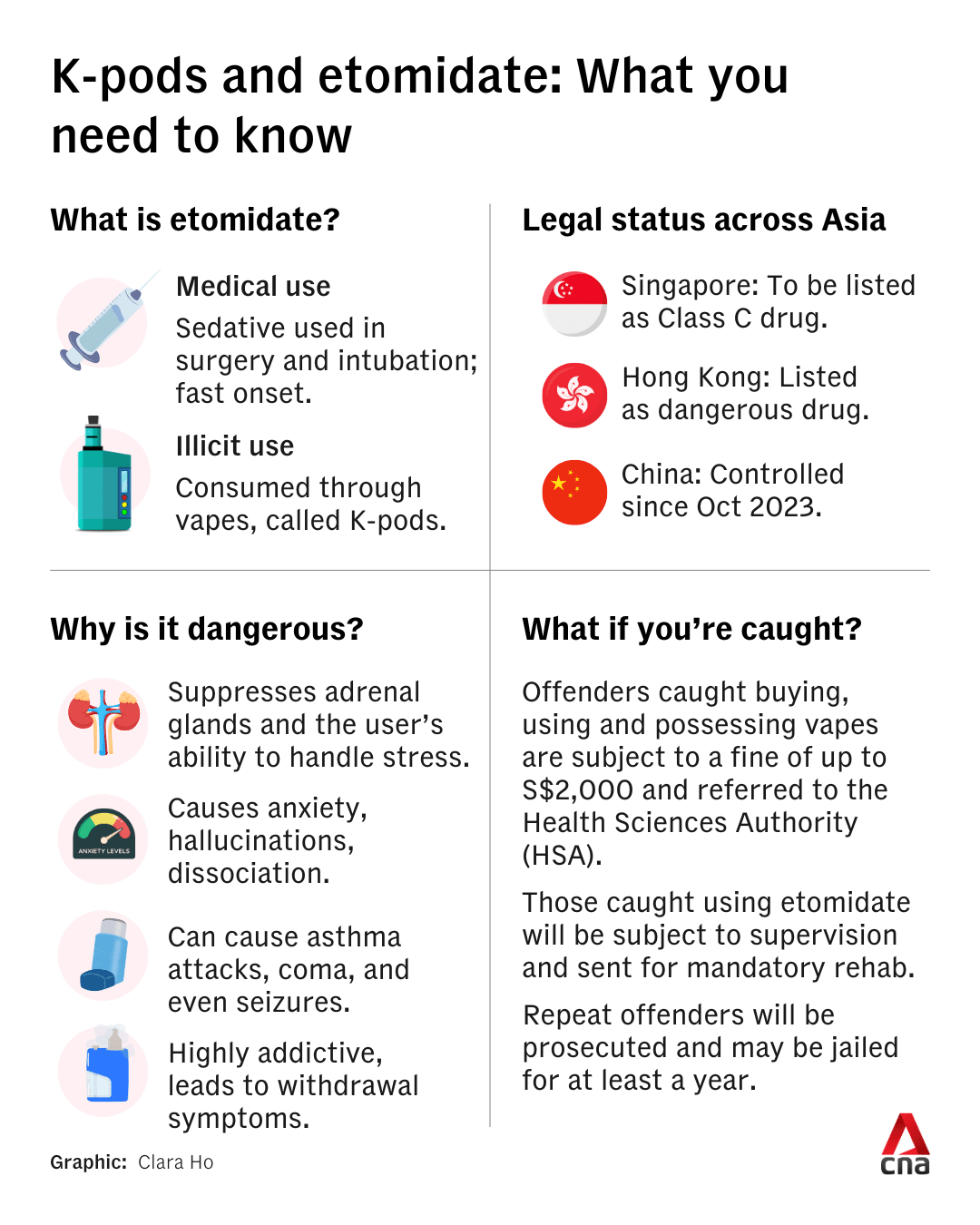Five charged for Kpod offences, 65 other cases being investigated
Singapore authorities have been dealing with a growing problem of people using Kpods, or vapes laced with etomidate.

File photo of vapes and related items. (Photo: iStock)

This audio is generated by an AI tool.
SINGAPORE: Five people have been charged as of Thursday (Aug 14) over the sale or import of Kpods, or e-vaporisers laced with etomidate.
About 65 other cases are being investigated by the Health Sciences Authority (HSA), involving the possession, sale or importation of Kpods.
HSA and the Ministry of Health (MOH) provided these figures in a joint media release on Thursday, as authorities deal with a growing vaping issue. There are rising concerns that students and young people are turning to drug-laced vapes.
Under the Poisons Act, those found guilty of possessing, importing or selling pods containing etomidate face a jail term of up to two years and a maximum fine of S$10,000.
Vaping is illegal in Singapore, and Kpods are increasingly making the headlines as cases rise.
On Wednesday, for instance, a man who manufactured Kpods and sold them from his home in Yishun pleaded guilty. The case is the first prosecution for e-vaporisers containing etomidate.
Etomidate is a fast-acting anaesthetic used in medical procedures.
When used outside a controlled medical environment, however, etomidate can be dangerous. Adverse effects include nausea and vomiting, uncontrollable movement or spasm of muscles, changes to breathing and blood pressure, as well as seizures and psychosis.

The authorities noted that etomidate will soon be classified as a Class C controlled drug under the Misuse of Drugs Act.
Offenders caught using etomidate-laced vapes will be subject to mandatory supervision and rehabilitation. Repeat offenders may be prosecuted and face a jail term of at least a year.
"More severe penalties apply to those selling, distributing or importing these devices, including imprisonment of up to 20 years and caning,” said MOH and HSA.
"Users of e-vaporisers, particularly those consuming etomidate, are strongly urged to cease consumption immediately."
VAPING OFFENCES
MOH and HSA said on Thursday that 18 other people are facing charges involving the sale, advertising or import of e-vaporisers.
Another 100 are under investigation for similar offences under the Tobacco (Control of Advertisements and Sale) Act.
The possession, use or purchase of e-vaporisers carries a maximum fine of S$2,000 under the Act. It is also an offence to import, distribute, sell or offer for sale e-vaporisers and their components.
Those convicted face a fine of up to S$10,000, or a jail term of up to six months or both for the first offence. The penalties double for repeat offenders.
All prohibited tobacco items will be confiscated.
BIN THE VAPE
Health Minister Ong Ye Kung said in July that while vapes started mainly as a device to deliver nicotine, they have now become delivery devices for a range of substances.
This ranges from nicotine to psychoactive substances such as etomidate, to hardcore drugs that are illegal.
Recently, authorities randomly tested more than 100 vapes that were seized, and one-third were found to contain etomidate.
Mr Ong also said there have been some deaths, including those arising from traffic accidents as well as unnatural ones, where etomidate was implicated, and investigations are ongoing.
To encourage people to stop vaping, authorities have rolled out an initiative to get users to dispose of their devices at "vape bins".
Authorities said those who step forward to bin their e-vaporisers or voluntarily seek support for quitting will not face any penalties.
The locations of these bins can be found online.















